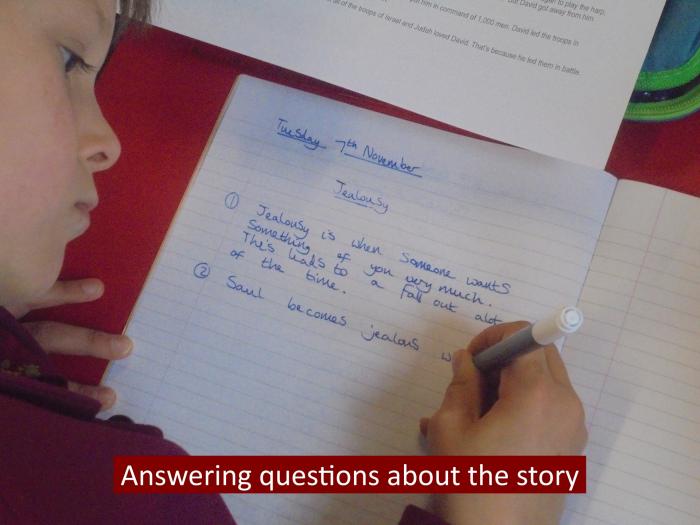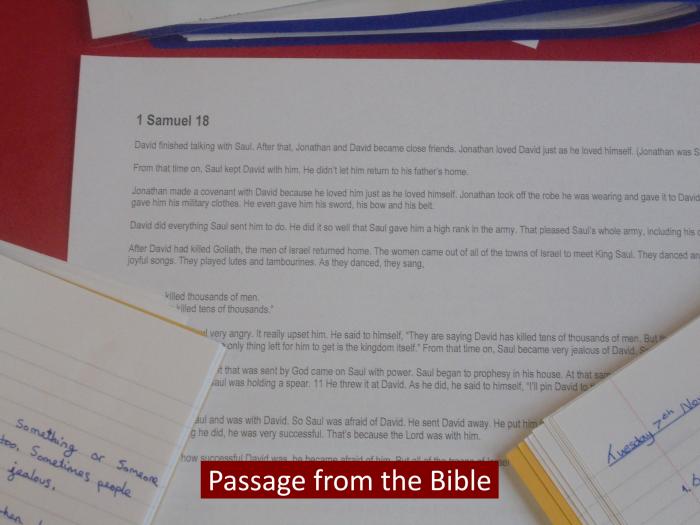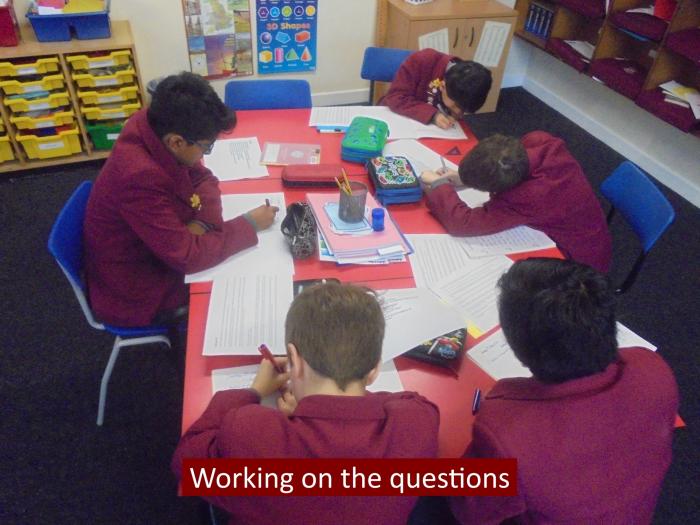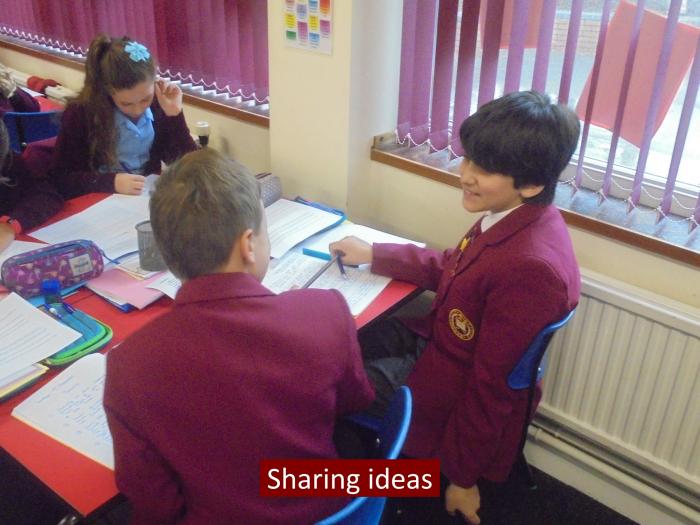




Exploring Jealousy
The children in 6AB have been grappling with some very big ideas recently, and this week Mrs Burnett invited them to think about the theme of jealousy.
Throughout this term the children’s learning in R.E. has had at its heart the famous Biblical character David. They have discovered what an exceptional person he was, and how he is a key figure not only in Christianity but also in Judaism and Islam. Previous lessons have covered his famous battle with the Philistine giant Goliath, as well as the development of his close friendship with Jonathan, the son of King Saul.
It was this friendship, and David’s growing popularity, that caused Saul to be eaten up with jealousy to the extent that he actually tried to kill David on several occasions. Initially the class read a passage from the First Book of Samuel, Chapter 18, to learn the cause of the fracturing of relations between Saul and David. Answering a series of questions about the story helped the children to clarify their thoughts.
Once everyone was familiar with the course of events, Mrs Burnett was keen to broaden the discussion into an exploration of the children’s own understanding and experience of jealousy. Ashmit put forward the view that the story of Saul and David centres on the differing expectations of the characters, leading almost inevitably to conflict between them. Considering the emotion in its purest form, Hannah wondered whether jealousy is primarily about showing off in a materialistic sense. Meanwhile, Barnaby questioned whether people should strive to keep up with the person of whom they feel jealous, or whether they should instead try to work through their feelings and be content with what they have. Edith actually went so far as to suggest that jealousy can be a positive emotion if it motivates someone to take action to improve themselves.
Next week’s lesson will be a philosophical discussion around these ideas. Throughout Upper School this year, the teachers are giving the children the opportunity to engage in philosophical thinking, and in Years 5 and 6 this has been specifically linked to Religion. The aim is for the children to organise their thoughts in response to large and often abstract concepts. They will be encouraged to express and clarify their opinions, using evidence and examples from real life; to develop the confidence to allow their ideas to extend further and, above all, to listen to and learn from each other.
For 6AB, next week’s lesson is eagerly anticipated. In addition to discussing some of the big ideas raised through the story of Saul and David, the class will create a list of the top ten triggers for jealousy in the modern world. It is fascinating to speculate what might be at number one!